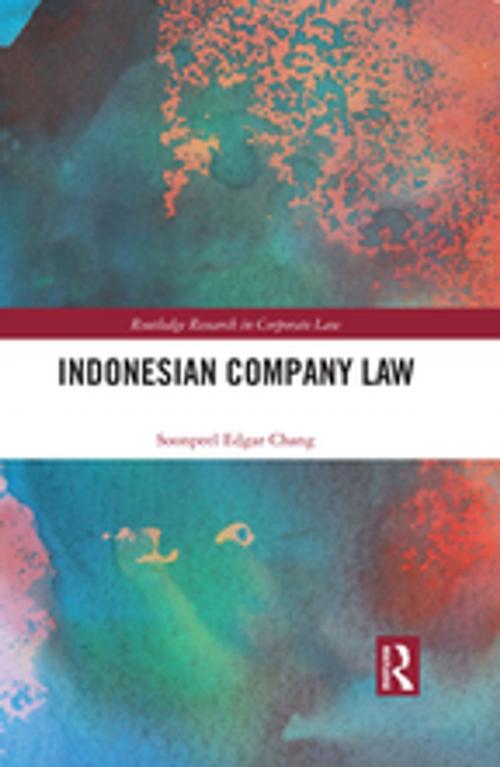Indonesian Company Law
Nonfiction, Reference & Language, Law, Corporate, Business, Business & Finance, Business Reference| Author: | Soonpeel Edgar Chang | ISBN: | 9780429994395 |
| Publisher: | Taylor and Francis | Publication: | May 16, 2018 |
| Imprint: | Routledge | Language: | English |
| Author: | Soonpeel Edgar Chang |
| ISBN: | 9780429994395 |
| Publisher: | Taylor and Francis |
| Publication: | May 16, 2018 |
| Imprint: | Routledge |
| Language: | English |
In modern countries, a company is commonly categorized as either public or privately-held, depending on whether securities are publicly traded on the open market, into a government-owned company or private company depending on government ownership, or a financial company or non-financial company depending on its main business, and so on. Of course, these categories are generally used in Indonesia as well. A unique aspect in Indonesia is that a well-settled legal practice mainly uses a dichotomy of company types that is rarely popular in foreign countries: a company with foreign direct investment (penanaman modal asing, or PMA) or company with 100% domestic direct investment (penanaman modal dalam negeri, or PMDN). Government plans concerning how to differently regulate these companies frequently becomes a national issue, as it is one of the main standards to evaluate how effectively and willingly the Indonesian government develops its economic policies. Laws, regulations, and actual legal practice also treat the two types of companies differently, based on whether a company has a foreign shareholder. Although many foreign countries are also equipped with similar regulations over companies with foreign direct investment, Indonesia distinctively applies this dichotomy for much wider uses for several reasons.
This book is designed to assist students, practitioners, and researchers with clear and comprehensive treatment of key concepts in Indonesian company law. Significant business, economic, and policy issues are highlighted together with a thorough analysis of the important statutory provisions and cases used in the study of Indonesian company law. The book includes the major theoretical approaches used in current company law literature and statutory issues are covered under both the 2007 Indonesian Company Act and the 2007 Indonesian Capital Investment Act. The book will be an essential reference for investors and businesses contemplating entering the Indonesian Market.
In modern countries, a company is commonly categorized as either public or privately-held, depending on whether securities are publicly traded on the open market, into a government-owned company or private company depending on government ownership, or a financial company or non-financial company depending on its main business, and so on. Of course, these categories are generally used in Indonesia as well. A unique aspect in Indonesia is that a well-settled legal practice mainly uses a dichotomy of company types that is rarely popular in foreign countries: a company with foreign direct investment (penanaman modal asing, or PMA) or company with 100% domestic direct investment (penanaman modal dalam negeri, or PMDN). Government plans concerning how to differently regulate these companies frequently becomes a national issue, as it is one of the main standards to evaluate how effectively and willingly the Indonesian government develops its economic policies. Laws, regulations, and actual legal practice also treat the two types of companies differently, based on whether a company has a foreign shareholder. Although many foreign countries are also equipped with similar regulations over companies with foreign direct investment, Indonesia distinctively applies this dichotomy for much wider uses for several reasons.
This book is designed to assist students, practitioners, and researchers with clear and comprehensive treatment of key concepts in Indonesian company law. Significant business, economic, and policy issues are highlighted together with a thorough analysis of the important statutory provisions and cases used in the study of Indonesian company law. The book includes the major theoretical approaches used in current company law literature and statutory issues are covered under both the 2007 Indonesian Company Act and the 2007 Indonesian Capital Investment Act. The book will be an essential reference for investors and businesses contemplating entering the Indonesian Market.















